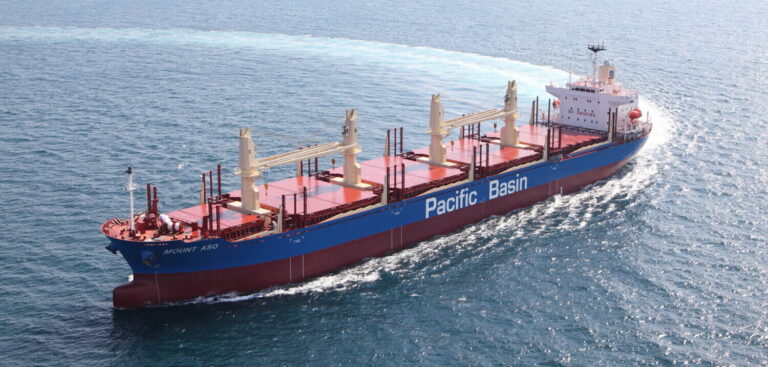Dry bulk shipping company Pacific Basin Shipping has signed a memorandum of understanding (MoU) with Nihon Shipyard and Mitsui & Co to jointly investigate the development of commercially viable zero-emission vessels (ZEV) and associated bunkering infrastructure.
With the International Maritime Organization (IMO) aiming to reduce the carbon intensity of global shipping by 40% by 2030 compared to 2008 levels and halve total greenhouse gas emissions from ships by 2050, the maritime industry must begin utilizing clean, alternative fuels. These include fuels such as ammonia or methanol, both of which require new or modified engines, alternate vessel designs and the associated international bunkering infrastructure.
Nihon Shipyard is a partnership consisting of two of Japan’s largest shipbuilders – Imabari Shipbuilding and Japan Marine United Corporation. At present, Nihon Shipyard is focusing on the design, construction and promotion of eco-friendly ships for zero-emission maritime operations.
By utilizing Mitsui & Co’s trading and business operations experience, which spans multiple sectors, the collaboration aims to investigate alternative fuel bunkering options and infrastructure, while seeking mutual benefits in the ordering of zero-emission vessels.
‘‘We are excited to be partnering with these two leading companies on this initiative, who we feel offer complementary expertise and size, as we continue along our decarbonization journey,” said Martin Fruergaard, CEO, Pacific Basin.
“Through this agreement, Pacific Basin will continue to be at the forefront of development within the industry, as we accelerate the transition and make zero-emission-ready vessels the default choice by 2030, and enable us to meet our target of zero emissions by 2050.’’
“We are very pleased to take part in the maritime industry’s green transition through entering this MoU with two of the leading companies in the industry. Energy solutions is a strategic focus area, and has been identified as a new growth opportunity that will contribute to decarbonization through the reduction of energy consumption and GHG emissions,” said Tatsuya Okamoto, COO, Mobility Business Unit II, Mitsui & Co.



